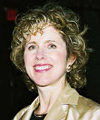Dear Heather,
I’m looking forward to this conversation. As you know, we have covered some of this ground in earlier talks, but just to bring our new friends up to date, I’d like to offer a bit of information on my background and my perspective on this issue, and why it seems to me that belief in God is not contrary to reason, but, indeed, seems to grow out of it.
I was born in the year that Adolf Hitler was elected Chancellor of Germany, and have never been able to blink away the horrors of the newsreel footage I saw at Saturday matinees during my youth: concentration camp fences; emaciated figures in ragged striped uniforms; stacked dead bodies pitched into trucks like sacks of sand. Hegel wrote somewhere: History is a butcher’s bench.
By age twelve I knew that human life can be far more horrible than I was at first willing to face, and I wondered whether unbelief, kicking back at the darkness, would be the most honest way. In the writings of atheists, I have often recognized some of my own bleak feelings. It is from this shared darkness that believers and unbelievers would do well to proceed.
An observation important to my own thinking about God is that knowledge of God’s presence, even though unseen, is the default position of the human race. For most of the human race in past history, and also today, the knowledge of God’s presence is part of daily awareness.
This knowledge does not depend on Christian or Jewish faith. It seems to spring from human reason itself–from the unlimited drive to ask questions, which leads our minds to the infinite and the eternal. This impulse seems to be irrepressible.
I also think about belief and unbelief with an awareness that in today’s world, articulate believers and unbelievers need to be able to carry on a civil, reasoned conversation in order to locate the exact areas of their disagreement. Many purported disagreements rest on gross misunderstandings, often on both sides. It takes a lot of quiet evenings to work through these. In No One Sees God, I try to examine what such a conversation would look like, by closely engaging with the “New Atheists.” This exchange proved very beneficial to me. The objections raised by atheists provide an excellent stimulus to deepen thinking about why atheism does not seem plausible to me or to most of us.
Over the years I have tried to contribute to this discussion through some partly original thinking about philosophical approaches to God. This leans me to a number of new epistemological points such as the power of “blicks” in affecting our heuristic expectations, our methods, and the range of our inquiries. Also the relation of the act of “existing” to the act of making a judgment. Our conversation might also benefit from some reflection upon the historical relations of the “secular”–an affirmative term invented by Christian thinkers before 450 A.D. – and the sacred or holy. St. Augustine recognized that the City of God is intended to penetrate the City of Man as yeast does dough. Each “City” has a wholeness of its own, and is complementary to the other.
All those who care about freedom and open inquiry, whether persons of unbelief or knowers of God, need to learn civil respect for each other, so that we can join forces in resistance to our time’s abundant enemies of liberty.

